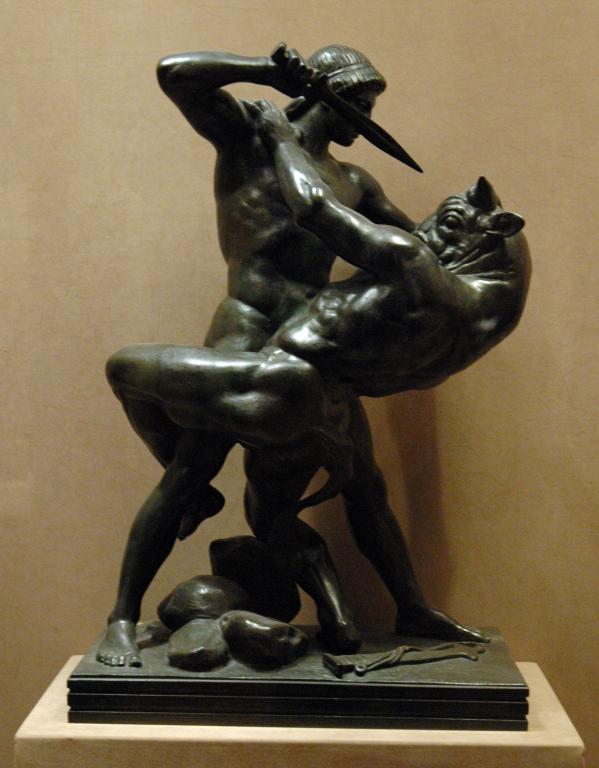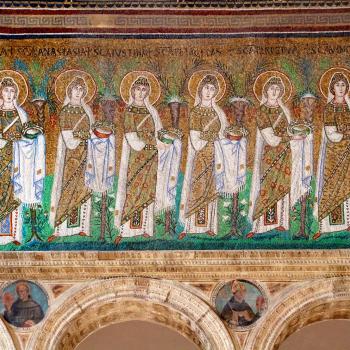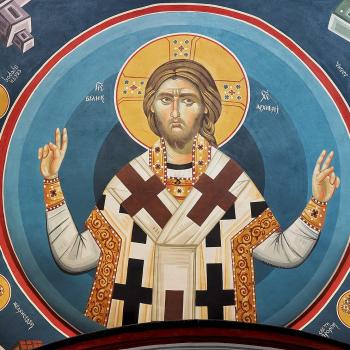 Quietism is a heresy which suggests we purify ourselves, tending our own monsters, by withdrawing from the world and becoming inactive. Quietism is spiritually dangerous because it tells us to ignore the needs of our neighbor as we seek to glorify ourselves. This is exactly one of the dangers Pope Francis was warning us about in his exhortation, Gaudete ex exsultate:
Quietism is a heresy which suggests we purify ourselves, tending our own monsters, by withdrawing from the world and becoming inactive. Quietism is spiritually dangerous because it tells us to ignore the needs of our neighbor as we seek to glorify ourselves. This is exactly one of the dangers Pope Francis was warning us about in his exhortation, Gaudete ex exsultate:
It is not healthy to love silence while fleeing interaction with others, to want peace and quiet while avoiding activity, to seek prayer while disdaining service. Everything can be accepted and integrated into our life in this world, and become a part of our path to holiness. We are called to be contemplatives even in the midst of action, and to grow in holiness by responsibly and generously carrying out our proper mission.[1]
It is true, Jesus told us to be concerned about our own spiritual wellbeing, to take the plank out of our own eye (cf. Matt. 7:5). We must always be mindful of our failings and seek to rectify them. But this is not meant to be used to excuse us from our duties to others. We are called to love our neighbor as ourselves; if we are to tend to our own monsters, apathy in regards to injustice is one of the great monsters which we must slay. We must not let quietist temptations squash our holy desires for righteousness. We must recognize that our own holiness, our own purity, requires us to be involved with social evils, not only denouncing them when we find them but also repairing the harm done which has been done. If we neglect our duty to our neighbor, we have neglected our duty to ourselves, and instead of tending to our own monsters, we are promoting them, turning the pursuit for holiness against holiness itself:
A person who sees things as they truly are and sympathizes with pain and sorrow is capable of touching life’s depths and finding authentic happiness. He or she is consoled, not by the world but by Jesus. Such persons are unafraid to share in the suffering of others; they do not flee from painful situations. They discover the meaning of life by coming to the aid of those who suffer, understanding their anguish and bringing relief. They sense that the other is flesh of our flesh, and are not afraid to draw near, even to touch their wounds. They feel compassion for others in such a way that all distance vanishes. In this way they can embrace Saint Paul’s exhortation: “Weep with those who weep” (Rom 12:15).[2]
To say that we are responsible for the evils in the world is true, but we must understand the truth of this in the right fashion. Inaction against evil is evil. Those who are standing up against evil are not equally as guilty as those who promote or defend or relativize the evil, suggesting all sides are equal in its establishment. A victim who stands up against their oppressor might be polarizing, but they are not at fault for speaking against evil, rather, they are already on their way in identifying the evil and establishing the means by which it can be overcome. Those who try to blame the victims of social evils, or those who seek to overturn injustice for polarization, are justifying evil and promoting it, and are to be rejected as defenders of evil:
Jesus offers a justice other than that of the world, so often marred by petty interests and manipulated in various ways. Experience shows how easy it is to become mired in corruption, ensnared in the daily politics of quid pro quo, where everything becomes business. How many people suffer injustice, standing by powerlessly while others divvy up the good things of this life. Some give up fighting for real justice and opt to follow in the train of the winners. This has nothing to do with the hunger and thirst for justice that Jesus praises.[3]
We must repent of our sins, it is true, but that does not mean we stop doing what is righteous; rather we must promote active righteousness as the way to tend to our monsters and overcome them. We must stand by what is just, even if it cuts society in half; insofar as we fail to follow justice with compassion and love, seeking to excise the evil and restore the good which had been lost, we can certainly agree that we are at fault and we need to tend to our failings in the world. However, on the other hand, we must not assume that all we need to do is some silent retreat in which we say and do nothing more until we believe we have established a purity of heart in ourselves. This will never be done without action; holiness is done in and through love, love is accomplished in deeds not words. We must start the journey towards holiness with love, giving ourselves to others, seeking to repair the harm done by injustice, and in the process, purify ourselves as we see where we have failed justice so that we truly overcome any and all temptations to avoid our responsibility to others under the guise of holiness.
In our society racism, sexism, and indifference to poverty and radical economic inequality are all monsters which we have to tend to and slay. We can’t become holy if we try to retreat to the comfort of our home, hide ourselves from the world, and do nothing. We can claim we are not a part of the problem, but we will be, for we will be failing to do what we ought to do for the illusion of purity.
“I did not do anything” should be seen as words of shame when you could have stopped what others were doing, when you did not work against the systematic structures of sin which allowed such abuses to continue. “To commit sin is frightening,” St. John Chrysostom preached, “however, it is much more painful to be exceedingly proud with respect to sin. If you are proud of righteousness, there is a loss of righteousness. Much more so when this occurs with reference to sins; it brings us the worst destruction.”[4] Those who are proud of their retreat from the world have already failed at righteousness, but those who see the proud sinner glorifying in injustice, justifying racism or sexism or abuse of the poor and needy have to speak out and resist that injustice lest they become complicit in the destruction which is to come.
Don’t let anyone fool you. The devil will come to tempt you away from the pursuit of justice. He will say you are not tending towards your own righteousness, or else, he will say you are just as guilty as those who promote injustice because you have made the situation worse. The wound of injustice is deep; exposing it might make it appear we have made it worse, but all we do is expose what is already there, festering as it remains invisible. That wound will grow so long as it is left untreated. Those who expose it and seek the proper treatment of the wound are not the ones guilty but those who retreat from their responsibility are like Cain, claiming they are not their brother’s keeper. It is the mark of madness, the mark of the murderer, to care less for the well-being of the other. It is a faulty logic which is at the heart of injustice itself.
[Image=Theseus Slaying the Minotaur by Antoine-Louis Barye [CC BY-SA 2.0 (https://creativecommons.org/licenses/by-sa/2.0)], via Wikimedia Commons]
[1] Pope Francis, Gaudete ex exsultate. Vatican Translation. ¶ 26.
[2] Pope Francis, Gaudete ex exsultate. ¶ 76.
[3] Pope Francis, Gaudete ex exsultate. ¶ 78.
[4] St. John Chrysostom, On Repentance and Almsgiving. Trans. Gus George Christo (Washington, DC: CUA Press, 1998), 7.
Stay in touch! Like A Little Bit of Nothing on Facebook

















